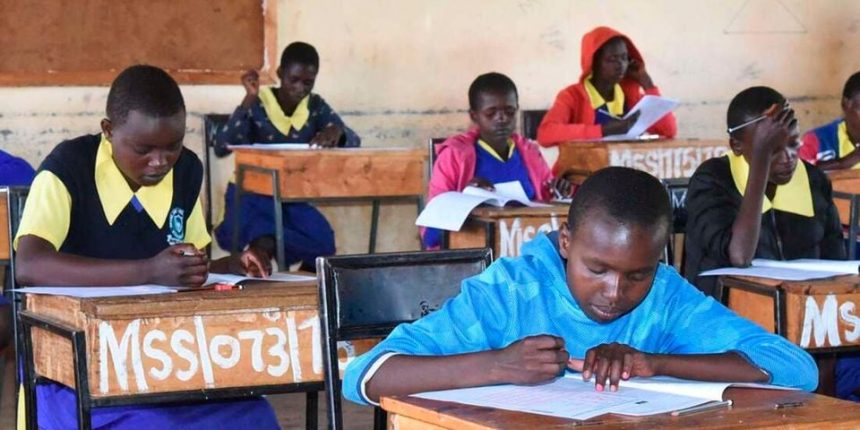KNEC CEO David Njeng’ere during the distribution of KCSE examinations at Murang’a East Deputy County Commissioner’s office on November 13, 2023.
KNEC Chief Executive Officer David Njeng’ere has said the government is working with the ICT department to end cases of people who have been circulating exam papers on social media, especially Telegram.
According to Njeng’ere, there is no genuine exam paper that can circulate online.
“What they do is collude with someone, look for an image of the paper being done then try to share it on social media. I can assure you with absolute confidence there is no single genuine paper that can circulate on social media platforms”.
He said the new rules that were applied in the administration of this year’s KCSE examinations have helped curb irregularities.
Njeng’ere said the double collection of morning and afternoon papers has helped limit early exposure of the second session papers.
The morning paper is collected at 7 am and administered between 8 am and 10 am, and the scripts are returned to the container.
The center managers then collect the second session papers at 12.30 pm and it is administered from 2 pm.
There have only been 46 cases of candidates being involved in various cases of malpractices in the country out of a candidature of 903,260 which he said is a negligible number.
The CEO lauded secondary school teachers for responding to the new rules and monitoring officers for being very vigilant.
Every case of attempted malpractice or participation in any behavior that may lead to malpractice has been reported and necessary action taken, he noted.
During the processing and marking of exams, Njeng’ere said markers will be vigilant to pick any behavior that will demonstrate that the attempts contributed to anything.
“The rules are clear. These are national examinations meaning rules apply the same to all candidates,” he said.
Last month, the National Assembly Committee on Education revealed that the Directorate of Criminal Investigations (DCI) handled 68 cases of exam malpractice during last year’s KCSE exams.
About 44 of them were pending investigation while 17 were pending before court and six were already concluded.
About 47 cases involved the use of mobile phones, 12 involved the use of written materials and one case involved a student impersonation.



